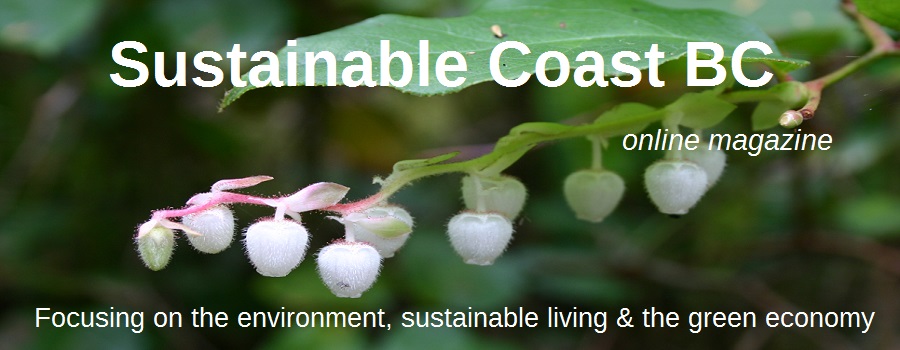Transitioning
- Details
- Written by Lee Riggs Lee Riggs
- Category: Uncategorised Uncategorised
- Published: 30 April 2010 30 April 2010
I just recently attended a Poultry and Rabbit Forum up in Quesnel sponsored by the Cariboo Central Interior Poultry Associaton. Over 110 people from all over the interior attended, including the Sunshine Coast.
[blockquote]When I think of Sunshine Coast sustainability I think about food. Is it possible for the coast to sustain itself for a period of time in the event of an emergency? [/blockquote]Day 1 mostly dealt with adding value to our agriculture, from selling jam instead of raspberries to selling our corn stalks for Halloween decorations instead of just the corn. Creating a niche in the local and tourist market. Working with the idea that people are simply looking for something to do with their families, particularly in the summer when time allows. On the other hand with all the regulations surrounding food safety and liability insurance, it is not all that easy, but a determined mind with persistence can create lots of opportunity for themselves. Over all it was a good day full of thought towards adding value to our existing senario.
Day 2 for me was spectacular. Three large conversations took place.
First was Tatjana Bates, a population health dietition and food policy advocate who has taken it upon herself to intervene into the school lunch programs and attempt to change the food our kids eat from fast food to slow food. Slow food being non-processed food. To be exact, salad bars. To bring it to a local level she has also connected the dots from the local farms to the schools. Paying market price for farmers to grow food for the school involved. Offering salad bars to kids who don't eat salad. It sounds impossible, but its not. Once kids start to shift their thinking they love it. With my own kids I have witnessed first hand how the school systems have trouble shifting their own minds from hot dogs in a foil wrapper to slow food. Funding is available for schools in BC to begin such a process. The program is called, "Farm to School" and it is happening.
On to chickens. Mark Robbins was next. Mark works for the Deptartment of Agriculture. His responsibilities at the Ministry comprise working with new farmers, working with local governments on issues related to agriculture and leading the initiative on small lot/scale farming.
Mark is growing pasture raised poultry and selling directly to the consumer and doing it within the regulations and rules. He told his story and gave his numbers and talked about his mistakes. He explained about the BC Chicken Marketing Board and how he established himself. He went through step by step telling his process and showing his numbers from how many chickens and turkeys to amounts of food and regulations that he needed to alter to work with his nonconventional version of raising poutry It was great. Mark was the "how to be a legal chicken farmer version". He is very approachable and I am sure a great resource, one that I will be using. His farm is called K&M Farms and I found him on the internet prior to this forum.
The last half of the day was slated for the Key Note speaker, Joel Salatin. Joel is an American farmer, lecturer, and author of such books as , "You can Farm" and "Salad Bar Beef". Joel was also an instrumental voice in the movie, "Food Inc" and prominently featured in the book, "Omnivores Dilema". Joel farms holistically and drug free on his Polyface Farms. In a word, the man was a HOOT. Unlike Mark Robbins working within the system, Joel takes the "opting out" philosophy when it comes to conforming to the present day meat regulations. Salatin, a self-subsribed "christian-libertarian-environmentalist-capitalist," is a man to be reckoned with.
When it comes to meat production on the coast, most farmers adhere to the, "opt out" philosophy. This is a fine way to be, except for two main points. First, only a few people will have the privilige of buying local, organic, pasture fed meat. Second ,is the fact that the government seems to be prosecuting farmers for not following their rules . Joel Salatin believes it is time for more farmers to stand up and educate the government about sustainable farming practices. I like Joel's way of being and what he represents. In a word, Freedom. Freedom to drink unpasturized milk if we want to. Freedom to grow , process and sell our own meat the way we want to.
[blockquote]My committment as a small scale farmer and meat producer on the Sunshine Coast , is to return the power of sustainability to us as a community.[/blockquote]
